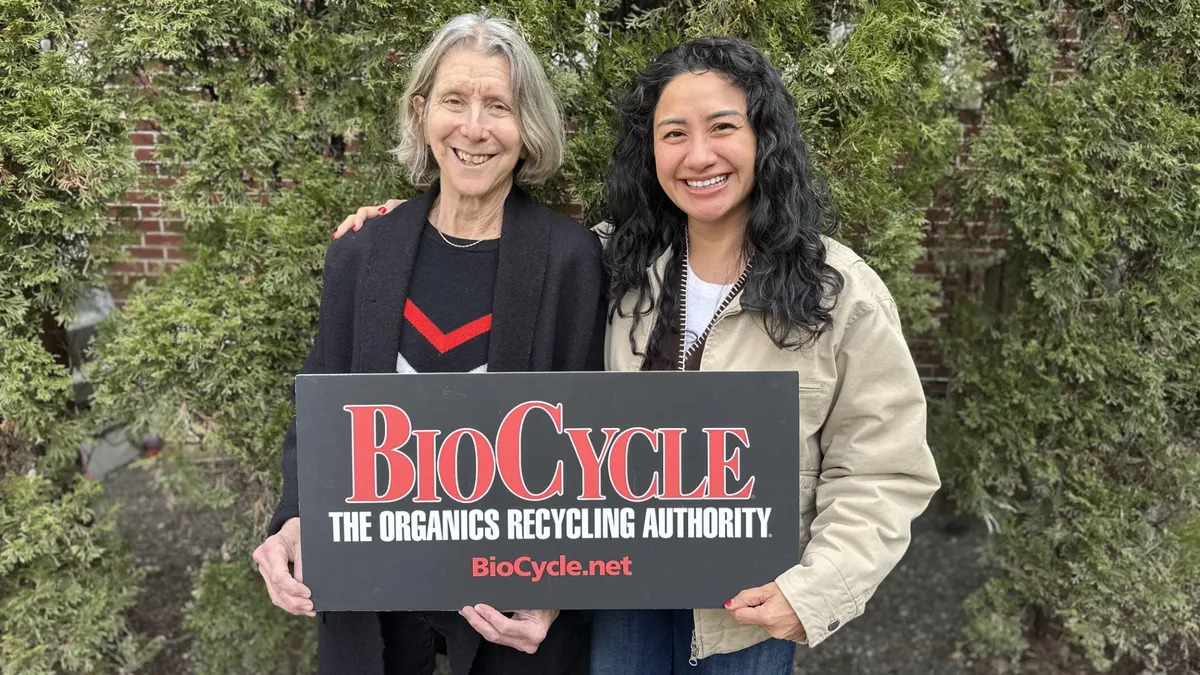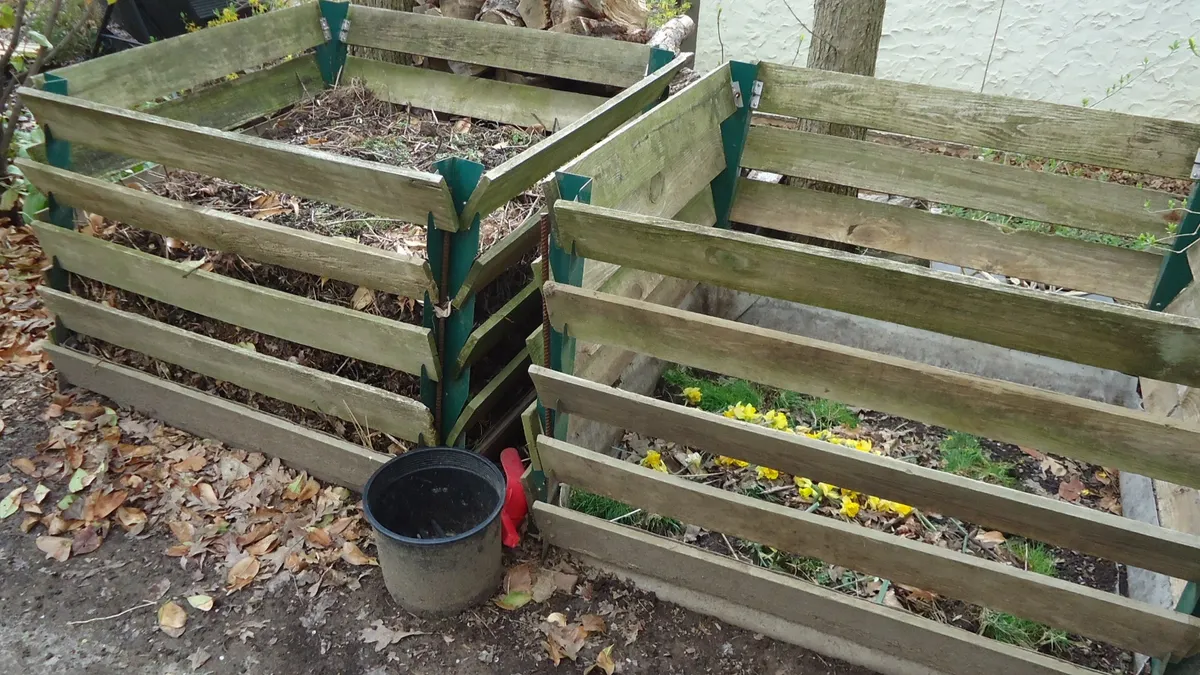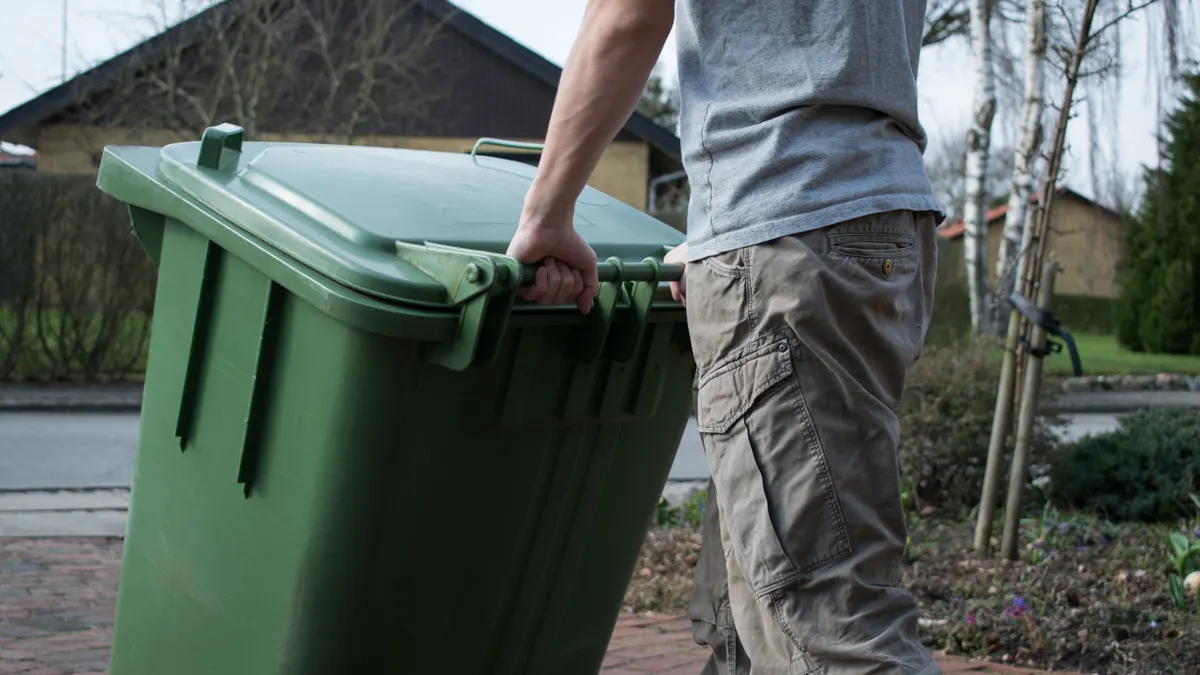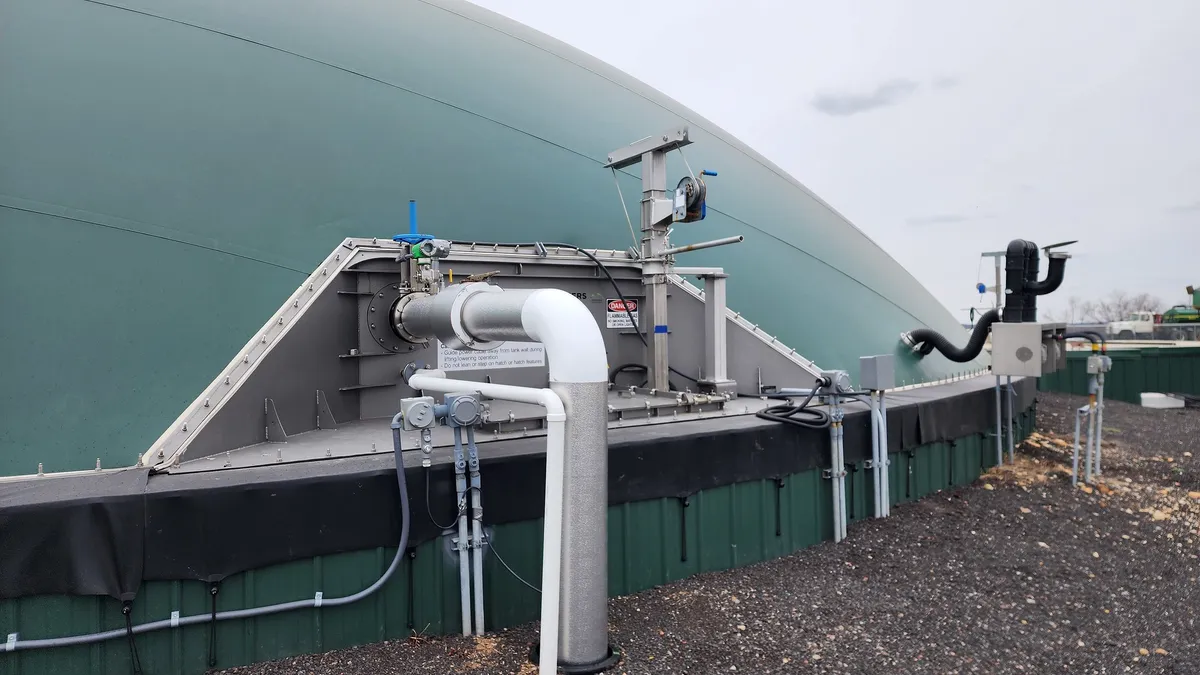Somerville, Massachusetts, will become the state’s latest municipality to launch a residential organics program after finalizing a curbside pilot contract at a cost of up to $306,595.
The city’s pilot with Garbage to Garden will cover 1,200 households in the neighborhood of East Somerville, which has a high rate of rodent complaints. The program will only be available to households in buildings with six units or less that don’t currently pay for organics service. Participants will receive a kitchen pail, a locking curbside bin, compostable liners and educational materials. Promotion will begin in the “coming weeks” with the pilot running through “mid-2027,” according to city officials.
Full or partial curbside organics programs already exist in neighboring Boston, Cambridge and Medford as local municipalities look to reduce their disposal volumes. Garbage to Garden manages the program in Boston, which now serves over 25,000 households, and Medford, which serves over 7,000.
Massachusetts has a goal to reduce waste disposal volumes 90% by 2050, from a 2018 baseline. Food waste accounts for 21% of the state’s disposal volumes, or about 930,000 tons, and an estimated 380,000 tons was diverted in 2023. The state’s Department of Environmental Protection is exploring whether to eventually ban disposal of residential organics, like it currently does for certain commercial generators.
MassDEP estimates that the state’s 160 municipal organics programs collectively managed 21,882 tons of food waste in 2024. Drop-off sites were the most common collection method, followed by preferred vendor subscription models and city-funded curbside programs.
Years of consideration
Somerville, New England’s most densely populated city, has faced years of pressure to launch an organics recycling program. The city’s lack of a program has even become a talking point in this fall’s local elections.
The city hadn’t prioritized organics recycling as highly in prior climate plans due to waste’s smaller role in emissions relative to categories such as transportation or buildings. A 2024 update gave it more weight, in part because of how waste factored into a new consumption-based greenhouse gas emissions inventory, and the city now shares MassDEP’s 2050 waste reduction goal.
“Our vision for Somerville is to be carbon net negative, which is doing our part and more within and beyond our borders,” said Christine Blais, Somerville’s director of sustainability and environment. Blais said composting helps “give residents the opportunity to grow the culture of climate change and it also gives folks something that they can really tangibly do.”
Somerville’s consideration of this program dates back to at least 2015, when a prior mayoral administration issued a request for proposals to launch curbside service and then rejected all bids due to cost concerns. The city launched a school cafeteria composting pilot in 2018, but paused it during the pandemic.
Mayor Katjana Ballantyne’s administration, which took office in 2022, hired Tetra Tech to create a zero waste plan. That 2023 plan recommended a curbside organics program as one of multiple strategies. One estimate received in late 2022, according to that plan, was $900,000 per year to service 3,750 households.
According to 2024 city council documents, the administration was hoping that it could win a $400,000 U.S. Department of Agriculture grant and pair that with $350,000 of city funding to launch a pilot that served 2,500 low-income households. This would have included households in Davis Square, East Somerville, Union Square and Winter Hill. The city’s USDA grant application wasn’t successful.
At the time, the city estimated 3,145 households paid for organics service via Garbage to Garden, Bootstrap Compost and others to divert over 1,100 tons per year. Maine-based Garbage to Garden, which previously purchased routes from Black Earth Compost, was listed as the city’s largest service provider.
A public records request showed that Garbage to Garden submitted a bid in February to provide weekly service for a cost to the city of $14.95 per month, plus initial startup costs for bins. City officials confirmed this was the only responsive bid. The company wrote that it “could launch the pilot program within weeks of being awarded the contract.”
The Ballantyne administration allocated for an organics pilot in the FY26 budget, and signed the contract in late June, but the program’s status has been vague for months.
“I’ve been frustrated that this is taking so long,” said Councilor Will Mbah, who chairs the city council’s environment committee, advocated for the 2018 school pilot and previously worked for MassDEP.
Mbah said he would have preferred that the city launch a program that it could afford, rather than waiting on federal funds. He also suggested the city apply for funding from the state because "they have resources to incentivize municipalities to do all these things.”
Blais said Somerville is exploring state funding to help offset city costs in the future.
Next steps
Annika Schmidt, Garbage to Garden’s municipal programs manager, said the company plans to serve the East Somerville pilot with its standard pickup trucks and trailers. Service will be on Fridays, the same day as waste and recycling pickup. Material may go to a variety of compost sites, including Brick Ends Farm in South Hamilton.
The hauler plans to use lessons learned from other cities, with a focus on outreach and education. Garbage to Garden sees a roughly 12-16% participation rate for its paid service in other Somerville neighborhoods considered for the pilot, but only about 4% in East Somerville.
East Somerville is considered an environmental justice community due to its proximity to highways and other industrial infrastructure, as well as its demographics. Educational materials will be available in at least six languages.
“We've been trying to shift all of our educational materials towards more image-based, reducing the amount of language included and simplifying,” said Schmidt, speaking about broader regional trends. “I feel like we've been constantly learning and adjusting and adapting to both what we're hearing directly from residents that we’re speaking to about what their barriers are.”
Garbage to Garden will use an honor system to exclude paid subscribers from the pilot, because it can’t verify other haulers’ customer lists. While some sources said this was less common, Tetra Tech said it has seen the approach used elsewhere.
“Residents who are excluded sometimes express concern about inequity; however, programs that emphasize the intent — expanding composting to households who do not currently have access — have generally been well received. Additionally, private haulers view this model as less disruptive to their customer base and revenue streams,” wrote Debra Darby, a manager of organics sustainability solutions at the firm, via email.
Earlier this year, Somerville residents also voted to approve $125,000 via a participatory budgeting process for organics drop-off bins. Blais described this program, which is currently in development, as “an interim step to a citywide composting program.”
The city also allocated $10,000 in its latest budget for a back-of-house composting program at school kitchens. No vendor is in place for either program yet.
Scaling curbside service further will depend on results from the East Somerville pilot as well as funding. The city’s 2024 memo noted that a successful organics diversion program could eventually offset rising disposal costs, but not in the near term. Mbah said there are multiple city stabilization accounts with unspent funds that could be used.
In the meantime, local governments that once hoped to take advantage of a boom period for federal grants from the USDA or U.S. EPA are looking inward as those opportunities decrease.
“This has led to a growing reliance on phased pilots and incremental rollouts that can be sustained within existing municipal budgets while continuing to pursue outside grant support,” wrote Darby, who noted state resources are also relatively limited. “While outside funding can catalyze pilots and infrastructure development, municipalities that plan for cost integration — sometimes through pay-as-you-throw systems or regional cost-sharing — are more likely to achieve stable and scalable curbside organics programs.”
Editor’s note: This article has been updated with newer enrollment numbers for Medford’s curbside organics program.



















